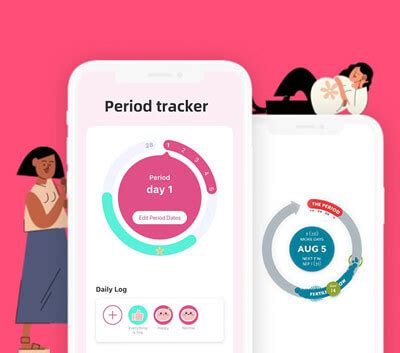The grassroot movement towards personal data privacy continues to swell, underscored by growing discomfort over how personal health information is handled by mainstream apps. Amidst this backdrop, the story of a developer who, disenchanted with the invasive practices of conventional menstruation tracking apps, built her own app lays bare the deep-running concerns over privacy. This bespoke app does not gather data to the cloud, unlike its numerous market counterparts, firmly planting control back into the user’s hands. The implications of such initiatives are profound, prompting a reevaluation of how technology interfaces with our most personal health data.
Illuminating the frictions inherent in many modern apps, users often find themselves at a crossroads between functionality and privacy. Therein lies the rub: popular solutions demand intricate pools of personal data to function optimally, held in servers beyond the user’s direct control. This new developer-centric app emerges as an antithesis to this model, serving users wary of where their sensitive data resides. Leveraging a simple, unobtrusive design, the app functions completely offline, preserving notes and health tracking information directly on the device. This simplicity is a revolutionary act in an industry often criticized for over-complicating user interactions to mine more data.
The reaction to such an app within community spaces like Hacker News is overwhelmingly positive, emphasizing a collective yearning for straightforward, transparent apps. Comments from the platform reflect a shared trepidation towards cloud-based, heavily monetized apps that seem to prioritize profit over user wellbeing. As one user pointedly noted, the migration from cloud-based services to local storage is not merely a feature, but a form of resistance against invasive data practices, signifying a broader pushback against the commercialization of personal health data.
However, every innovation comes with a slew of challenges and ethical considerations. For instance, the introduction of in-app purchases raised eyebrows among the privacy-conscious community. Skeptics queried the necessity of such features in an app that champions simplicity and privacy, igniting a debate on the true cost of ‘free’ apps. Are these features merely benign pathways for developers to earn a livelihood, or do they surreptitiously erode the app’s foundational privacy claims by incorporating elements like Google Play Services, known for its pervasive data collection practices?
The discourse around the monetization of privacy-centric apps reveals a complex landscape of user expectations and developer challenges. Some users suggest alternative revenue models that bypass traditional app marketplaces, thereby avoiding the privacy compromises ensnared by platform-associated fees and data policies. Suggestions include direct donations or using open-source frameworks, which might offer more transparent operations and the possibility of peer review.
Meanwhile, privacy advocates propagate the adoption of open-source licensing, arguing that visibility into the source code could enhance trust and security. This transparency allows users to verify the app’s true behavior against its privacy claims, an important consideration in an era where data mismanagement can have real-world consequences, particularly in sensitive areas like reproductive health. In an environment where apps can be weaponized against users, as seen in various data breach scandals, open-source projects offer a beacon of accountability.
Yet, this move towards open-source necessitates a broader support system to be effective. Developing and maintaining such projects can be taxing without the communal support that robust open-source ecosystems typically enjoy. The reality is that open-source does not merely mean launching the code into the world; it involves continuous engagement, bug fixes, and updates, demanding sustained effort and resources from developers.
As we pivot towards more ethically-aligned tech, the role of marketplaces and developers in safeguarding privacy becomes crucial. Platforms like F-Droid, which host open-source apps exclusively, embody this principle by enforcing strict privacy standards. However, the challenge persists in popularizing such platforms which see comparatively meager usage beside behemoth counterparts like Google Play. The road ahead for privacy-centric apps is fraught with hurdles, both technical and cultural, but the foundation laid by these burgeoning initiatives shines a hopeful light on the potential for a more privacy-respectful tech landscape.


Leave a Reply